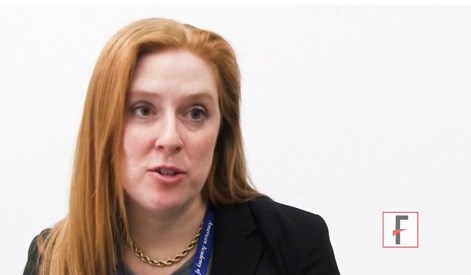User login
SAN FRANCISCO – Gay and bisexual men are about six times more likely to use tanning beds than straight men, and have about twice the risk of skin cancer, according to a review of California Health Interview Surveys and the 2013 National Health Interview Survey, which captured results for almost 200,000 adult men and women.
Overall, 5-11% of gay and bisexual men reported using tanning beds, versus about 1-3% of straight men. The lifetime history of skin cancer was about 4.3-6.6% among sexual minority men, but about 2.7-3.3% among straight men. The differences were statistically significant.
The study doesn’t prove cause and effect, but it does define a previously unrecognized group at higher risk for skin cancer, and a potential reason for it. Investigator Dr. Sarah Arron, associate professor of dermatology at the University of California, San Francisco, explained what the findings mean for practicing dermatologists in an interview at the annual meeting of the American Academy of Dermatology.
Meanwhile, the study found that gay and bisexual women were less likely than straight women to report using tanning beds, and less likely to report non-melanoma skin cancer.
The video associated with this article is no longer available on this site. Please view all of our videos on the MDedge YouTube channel
SAN FRANCISCO – Gay and bisexual men are about six times more likely to use tanning beds than straight men, and have about twice the risk of skin cancer, according to a review of California Health Interview Surveys and the 2013 National Health Interview Survey, which captured results for almost 200,000 adult men and women.
Overall, 5-11% of gay and bisexual men reported using tanning beds, versus about 1-3% of straight men. The lifetime history of skin cancer was about 4.3-6.6% among sexual minority men, but about 2.7-3.3% among straight men. The differences were statistically significant.
The study doesn’t prove cause and effect, but it does define a previously unrecognized group at higher risk for skin cancer, and a potential reason for it. Investigator Dr. Sarah Arron, associate professor of dermatology at the University of California, San Francisco, explained what the findings mean for practicing dermatologists in an interview at the annual meeting of the American Academy of Dermatology.
Meanwhile, the study found that gay and bisexual women were less likely than straight women to report using tanning beds, and less likely to report non-melanoma skin cancer.
The video associated with this article is no longer available on this site. Please view all of our videos on the MDedge YouTube channel
SAN FRANCISCO – Gay and bisexual men are about six times more likely to use tanning beds than straight men, and have about twice the risk of skin cancer, according to a review of California Health Interview Surveys and the 2013 National Health Interview Survey, which captured results for almost 200,000 adult men and women.
Overall, 5-11% of gay and bisexual men reported using tanning beds, versus about 1-3% of straight men. The lifetime history of skin cancer was about 4.3-6.6% among sexual minority men, but about 2.7-3.3% among straight men. The differences were statistically significant.
The study doesn’t prove cause and effect, but it does define a previously unrecognized group at higher risk for skin cancer, and a potential reason for it. Investigator Dr. Sarah Arron, associate professor of dermatology at the University of California, San Francisco, explained what the findings mean for practicing dermatologists in an interview at the annual meeting of the American Academy of Dermatology.
Meanwhile, the study found that gay and bisexual women were less likely than straight women to report using tanning beds, and less likely to report non-melanoma skin cancer.
The video associated with this article is no longer available on this site. Please view all of our videos on the MDedge YouTube channel
AT THE AAD ANNUAL MEETING
